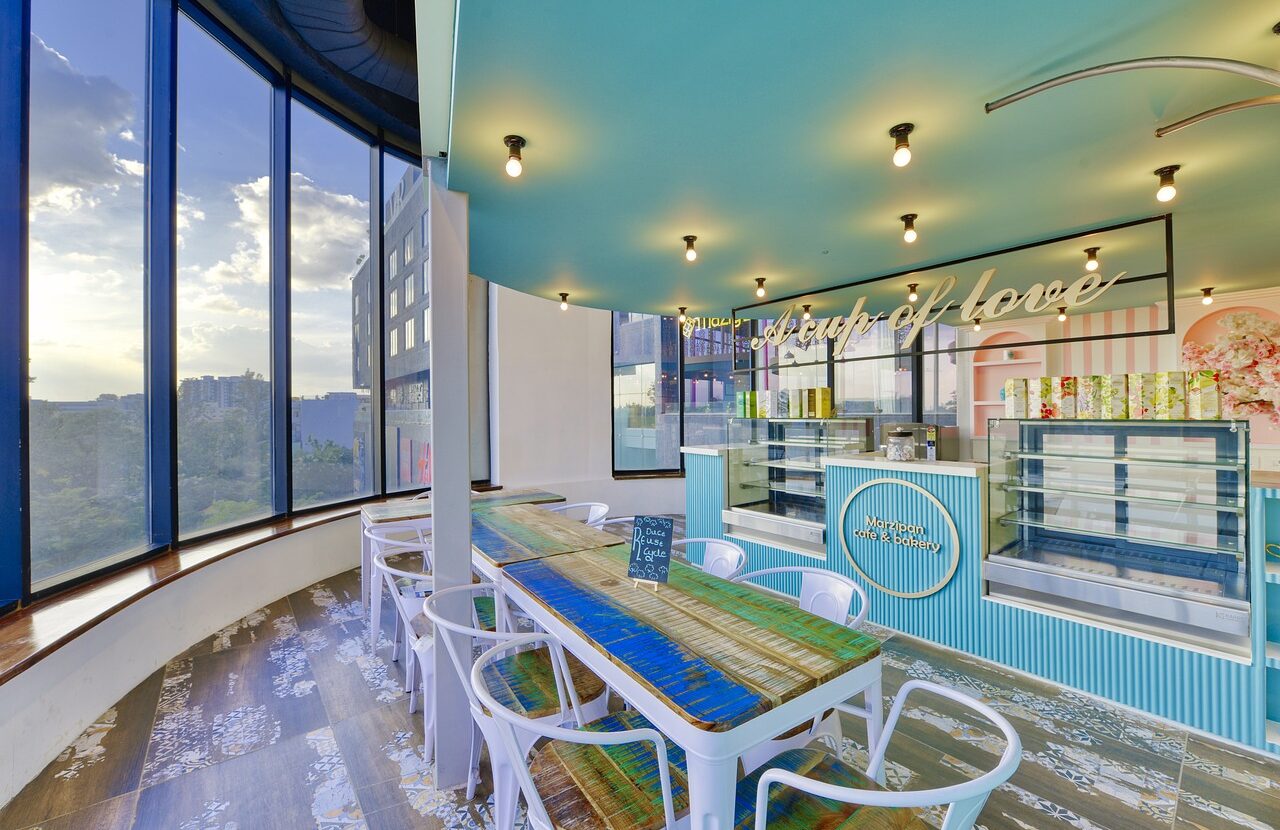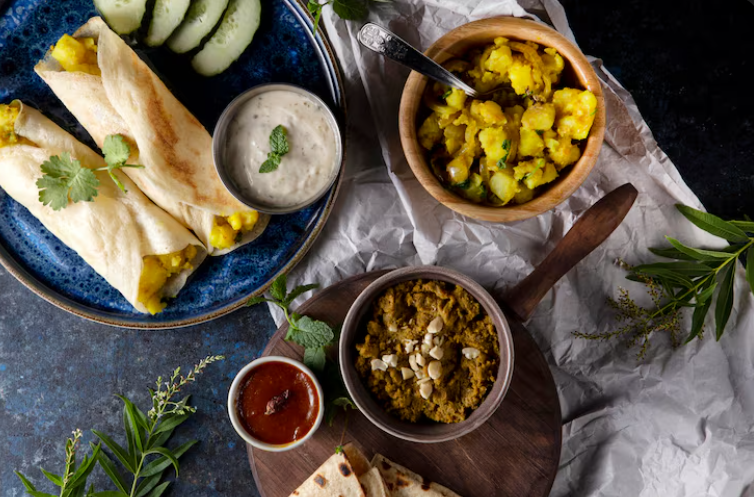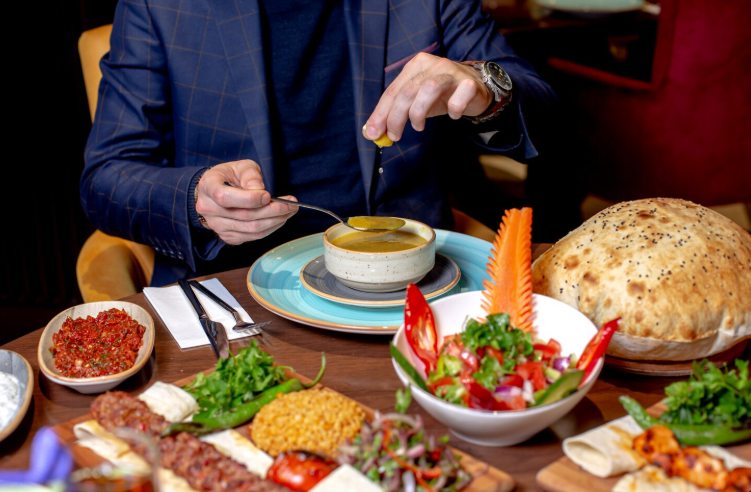
- June 3, 2025
Restaurant Franchise Cost in India: Comprehensive Insights on Investment, Models, and Growth Opportunities
If you’re exploring opportunities in the food business sector, the first and foremost factor to understand is the restaurant franchise cost in India. The total investment can vary dramatically depending on factors such as the brand you choose, your franchise model, location, and operational scale. Grasping these costs upfront is essential to avoid unexpected expenses and to make a profitable, well-informed decision. For those considering cities with burgeoning food scenes, locations like Mumbai and Delhi offer diverse opportunities with varying investment levels.
The restaurant franchise cost in India plays a significant role in deciding the feasibility of your venture, as it encompasses everything from the franchise fees to operational and legal costs. With the food industry in India growing at a rapid pace, many entrepreneurs see investment in restaurant brands as a lucrative path. However, knowing the fees for restaurant franchise and associated expenses is crucial to aligning your budget with your business goals. This article aims to provide a thorough understanding of the restaurant franchise cost in India, helping you take the right step toward a successful food franchise.
Why Restaurant Franchising is Booming in India
The Indian food and beverage industry is experiencing exponential growth, creating a robust environment for franchise businesses. The increasing urban population, rising disposable income, and evolving consumer preferences are fueling this trend. The restaurant franchise cost in India is influenced by this boom, as new franchise models and food concepts continue to emerge.
Quick Service Restaurants (QSRs), cloud kitchens, and experiential dining formats have gained popularity, catering to diverse tastes and lifestyles. Consumers are becoming more health-conscious, leading to demand for nutritious, fresh, and clean-label menus. Additionally, the rise of food delivery platforms has enabled restaurants to expand their reach without large dine-in setups, affecting the cost of food franchise India.
This dynamic environment makes franchising an attractive option because it allows entrepreneurs to leverage established brands, reducing the risk compared to starting from scratch. As more Indians embrace eating out and ordering food, the restaurant franchise cost in India remains a key consideration for anyone planning to enter this thriving market.
Understanding the Real Cost of Opening a Restaurant Franchise in India
When evaluating the restaurant franchise cost in India, it’s important to understand the different components that make up this investment. Many first-time investors focus solely on the franchise fee, but the total cost involves multiple elements:
- Initial Franchise Fee: This is the upfront payment to the franchisor for the rights to operate under their brand name. It can range widely depending on brand popularity. For instance, popular brands like Mysore Aduge offer competitive fees for a South Indian food franchise in Bangalore.
- Infrastructure Setup: Significant funds go into designing the interiors, purchasing kitchen equipment, furniture, and décor. This is a major part of the veg restaurant franchise cost in India, especially if you opt for upscale locations in Mumbai or Pune.
- Licenses and Regulatory Costs: Acquiring licenses such as FSSAI, GST registration, Fire NOC, and liquor licenses (if applicable) are mandatory expenses that add to the initial cost.
- Staff Hiring and Training: Hiring skilled staff and providing brand-specific training ensures smooth operations but comes with associated costs.
- Marketing and Launch Expenses: Pre-opening promotional activities, advertising, and digital marketing campaigns are necessary to create brand awareness.
- Royalty and Operational Costs: After opening, franchisees must pay royalties, typically between 2% and 8% of gross revenue, which forms a recurring expense.
By considering all these factors, you get a clearer picture of the restaurant franchise cost in India beyond the franchise fee. This comprehensive understanding will help you create an accurate financial plan.
Investment Range by Restaurant Type
The restaurant franchise cost in India can differ drastically based on the type of restaurant and the brand’s positioning in the market. Here’s a general idea of what to expect:
- Fast Food Franchises:
Investment range between ₹10 Lakh to ₹50 Lakh. Popular fast food brands in India include One Bite and Kathi Junction. These typically offer quicker returns but require strong location strategy. - Casual Dining Franchises:
These demand higher investments ranging from ₹50 Lakh to ₹1 Crore. Brands like Barbeque Nation and Biryani by Kilo fall under this category. These models emphasize ambiance and menu variety. - Fine Dining or Restro-Bar Franchises:
With investments ranging from ₹1.5 Crore to ₹5 Crore, fine dining requires larger capital. Brands such as Ministry of Daru operate in this space, focusing on premium service and unique experiences. - Regional Cuisine (Vegetarian) Franchises:
Lower investment range from ₹10 Lakh to ₹30 Lakh, with brands like Mysore Aduge specializing in traditional vegetarian cuisine. This category suits entrepreneurs targeting Tier 2 and Tier 3 cities.
Knowing these ranges can help you select the right franchise that fits your budget while keeping profitability and growth prospects in mind. The restaurant franchise cost in India varies widely, so aligning with your business goals is essential. For more insights on regional cuisine, you can read about South Indian traditional food and famous South Indian food.
Comparing Franchise Models
The franchise model you choose directly impacts your restaurant franchise cost in India as well as your involvement in daily operations:
- FOFO (Franchise-Owned, Franchise-Operated):
You own the franchise and operate the business yourself. This model usually requires higher initial investment but gives you full control over operations and decisions. Examples include Ministry of Daru and One Bite. It’s ideal for entrepreneurs who want hands-on management and scalability. - FOCO (Franchise-Owned, Company-Operated):
Here, you invest capital but the franchisor operates the outlet. It’s a passive investment option requiring less time but potentially offering lower control over operations and profits. - COCO (Company-Owned, Company-Operated):
These outlets are owned and operated by the parent company and are generally not open for franchisees. - Single Unit vs Master Franchise:
Single-unit franchises involve operating one location with relatively lower costs, while master franchises require larger capital but allow control over multiple units within a territory, significantly increasing the restaurant franchise cost in India.
Choosing the right model depends on your capital availability, management experience, and long-term vision for the business.
Legal & Operational Considerations
While calculating the restaurant franchise cost in India, entrepreneurs must not overlook legal and operational expenses that come with running a franchise:
- Mandatory Licenses: Securing licenses such as FSSAI for food safety, GST registration, Fire No Objection Certificate, and liquor licenses (if applicable) are critical and sometimes expensive.
- Franchise Agreement Terms: These include tenure (usually 5-10 years), exclusivity of territories, renewal fees, and terms related to termination or transfer of rights.
- Royalty and Marketing Fees: These are recurring fees, often 2-8% of your gross revenue, paid to the franchisor for brand use, support, and marketing.
- Insurance and Compliance: Additional expenses may include insurance coverage for the property, employees, and compliance with labor laws.
These factors contribute to the ongoing restaurant franchise cost in India and should be factored into your business plan.
Hidden Costs to Watch Out For
Many franchisees focus on obvious expenses but overlook hidden costs that impact the total restaurant franchise cost in India:
- Local Municipal Taxes and Charges: These can vary by city and add to monthly overheads.
- Supply Chain Dependencies: Fluctuations in raw material costs and vendor reliability can affect profit margins.
- Location-Specific Renovations: Even if a franchise provides a turnkey setup, some locations require additional modifications or permits.
- Inventory Wastage and Perishables: Food spoilage and inventory losses add to operational expenses.
Being aware of these hidden costs beforehand can help you manage your cash flow effectively and avoid surprises.
Expert Tips to Maximize ROI on Franchise Investment
To ensure the best return on your restaurant franchise cost in India investment, consider these expert strategies:
- Choose franchises with strong marketing and operational support to reduce your management burden.
- Invest in high-footfall locations that guarantee consistent customer flow.
- Monitor the brand’s online reputation and customer feedback regularly to maintain quality.
- Innovate within the menu periodically to cater to changing consumer tastes and preferences.
- Join franchise networks and platforms such as Franchise India to compare cost of food franchise India options and negotiate better terms.
Careful planning and execution significantly improve the chances of your franchise becoming a successful venture.
Mysore Aduge – A Profitable South Indian Veg Franchise
Mysore Aduge is an exemplary regional vegetarian franchise focusing on authentic Mysorean cuisine based on sattvik (pure and healthy) food principles. The restaurant franchise cost in India for Mysore Aduge starts under ₹30 Lakh, making it an affordable option for many entrepreneurs, especially in Tier 2 and Tier 3 cities where demand for traditional cuisine is growing.
The brand offers:
- Turnkey franchise setup with infrastructure and equipment
- Comprehensive training and operational support
- Strong digital marketing presence and customer engagement
- Flexible franchise terms with transparent fees for restaurant franchise
- Growing pan-India footprint with proven profitability
Mysore Aduge represents a low-risk, high-reward franchise model combining culture, health, and profitability—an ideal choice for investors mindful of cost but eager for sustainable growth.
Conclusion
The restaurant franchise cost in India is a multifaceted investment that requires careful consideration of upfront fees, ongoing royalties, legal compliance, and hidden expenses. Selecting the right brand and franchise model tailored to your financial capacity and business ambitions is essential for long-term success.
Brands like Mysore Aduge showcase how affordable fees for restaurant franchise can translate into profitable opportunities, especially in regional markets with growing demand. By thoroughly evaluating the complete cost structure and seeking franchises with strong support systems, you can make your franchise journey both financially rewarding and sustainable.
Are you ready to invest in a culturally rich, health-conscious, and scalable restaurant franchise?
Discover Mysore Aduge’s authentic South Indian vegetarian franchise opportunity with minimal restaurant franchise cost in India, excellent brand backing, and a strong tradition of culinary excellence.
Visit Mysore Aduge Franchise Page or call +91 96860 22269 to start your franchise journey today.
Frequently Asked Questions
The restaurant franchise cost in India varies widely from ₹10 Lakh to over ₹5 Crore depending on the franchise type, brand, and location.
Generally, food franchises have a structured cost and proven model, which can make initial setup less risky and more predictable than independent restaurants, but the restaurant franchise cost in India includes franchise fees that independent restaurants don’t have.
Hidden costs include local taxes, supply chain fluctuations, additional renovation, inventory wastage, and compliance expenses.
Franchise fees can range from a few lakhs to crores depending on brand value. Additionally, royalty fees usually range between 2% to 8% of monthly sales.
Yes, many banks and NBFCs provide loans for franchise investments, often based on the brand’s credibility and your business plan.
Break-even periods vary but typically range from 1 to 3 years depending on franchise type and operational efficiency.
FSSAI license, GST registration, Fire NOC, and in some cases, liquor license are mandatory.
Yes, Mysore Aduge provides extensive training, marketing support, and operational assistance to all its franchise partners.








